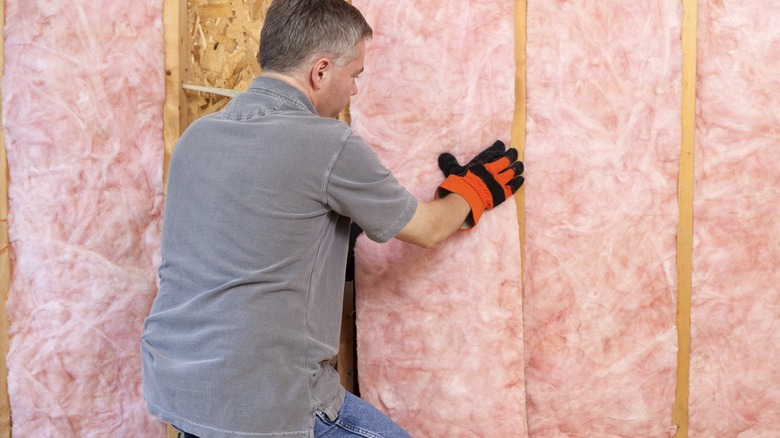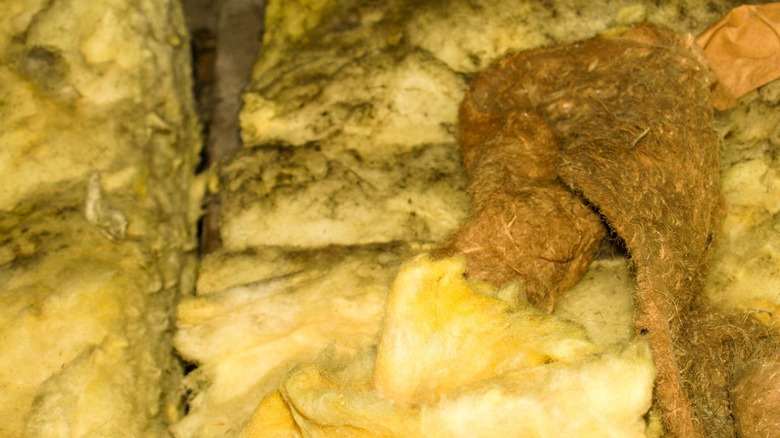Is There Such A Thing As Too Much Insulation?
While it may come as quite a shock to some, there is indeed such a thing as too much insulation. Thankfully, this is rarely the case; typically, we hear about not having enough insulation. Still, in case it does happen, it's helpful to know what kinds of problems it can cause.
But first, how much insulation is considered too much, anyway? This is something that varies by region. According to Ecohome, a good rule of thumb on this is that the R-value of the insulation being installed should actually be approximately double the code minimum for ideal performance. Conversely, if your attic joists are visible to you, you might not have enough insulation.
You can check for the correct R-value of insulation for your region by visiting the chart on the Energy Star website. Alternatively, you can have a professional come inspect yours to help you make the right decision. In most of the United States, an R-value of 38 is more than adequate.
Poor ventilation can cause mold to accumulate
Most attics are vented, which is a system designed to help the house breathe. In the summer, moisture from humidity in the house is allowed to escape with hot air in the attic through those vents. This also protects shingles from damage. In the winter, the vents help keep the roof cool so that if any snow accumulates, it won't melt and subsequently resolidify in the gutters. The vents help your home stay more energy efficient.
The attic's vented system is important because if you have too much insulation, these vents can become blocked. This results in moisture buildup and the possibility of mold accumulating in the center. (Of course, we don't have to tell you how dangerous that situation could become.) Not only that, but it will actually become less energy-efficient instead of being more so. Additionally, it will become difficult to maintain a consistent temperature throughout your home. The air quality will suffer, too.
Diminishing ROI and environmental concerns
Here's the thing: Making sensible and occasional investments in your insulation should lead to steady, appreciable returns. However, when you've been in your house for decades and plan to stay, there will come a point where you will need no more insulation. By then, any minute benefit you might gain from the insulation is offset by the cost to buy and install it. There are also environmental concerns around making insulation, such as the emissions from greenhouse gases and the consumption of natural resources to do so.
Keep in mind as well that the same side effects happen if you have too little insulation. Less energy-efficient, hard to keep a consistent temperature, mold growth, etc. are all things that happen when you under-insulate. Most homes could use more insulation, and that's the more likely scenario. The bottom line is that it's important to find the right balance.


